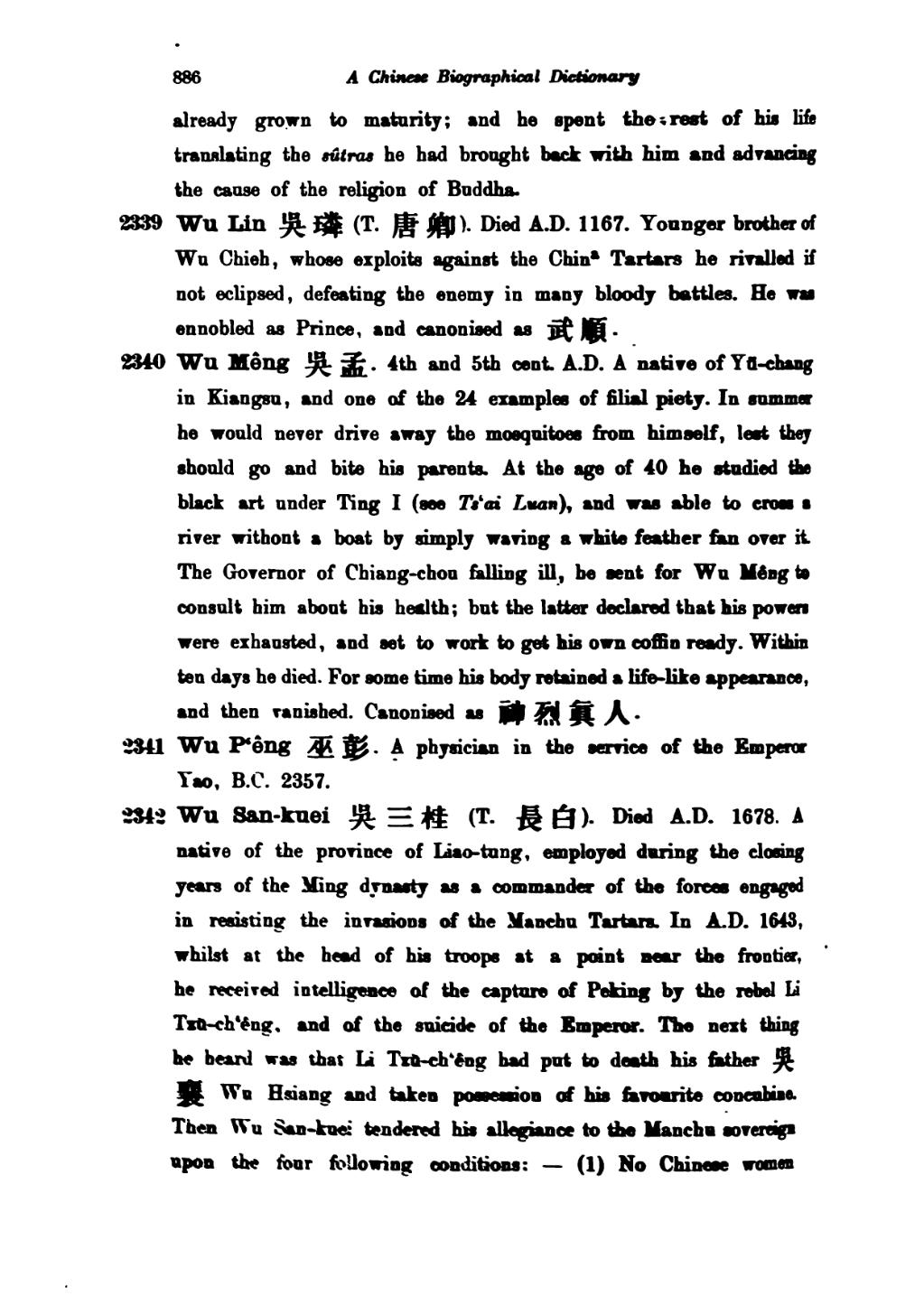already grown to maiariiy; and he spent the % rest of his li£B translating the mkiroB he had brought back with him and adyandiig the caose of the religion of Bnddha.
2339 Wu Lin ^^ j|| (T. H |||). Died A.D. 1167. Younger bioiherof Wn Chieh, whose exploits against the Chin* Tartars he riTalled if not eclipsed, defeating the enemy in many bloody battles. He was ennobled as Prince, and canonised as |$J|^-
2340 Wu Meng ^ ^. 4th and 5th cent. A.D. A native of Yfl-chaog in Saangsn , and one of the 24 examples of filial {Mety. In snmmer he wonld never driye away the moaqnitoes firom himself, lest they should go and bite his parents. At the age of 40 he stndied fte black art nnder Ting I (see TJ'ai Lman^ and was able to cross s river withont a boat by simply waring a white feather fiui oyer ii The GrOTemor of Chiang-chon fdling ill, he sent for Wn Mtegte consult him about his health; but the latter declared that his powan were exhausted, and set to work to get his own coflBn ready. Within ten days he died. For some time his body retained a life-like appearance, and then ranished. Canonised as 1(1 ^ ^ ^ •
2341 Wu Peng ^ ]^. A phyrician in the serriee of the Emperor Tao, B.C. 2357.
2342 Wu San-lniei ^ H 3|i (T. ^ Q ). Died A.D. 1678. A native of the prorince of liao-tnng, employed daring the closing years of the Ming dynasty as a commander of the forces engsged in resisting the inrasions ai the Manehn Tartars. In A.D. 1643, whilst at the head of his troops at a point near the frontier, he receired inteUigence of the captnre of Peking by the rebel la Tithch^^ng, and of the snidde of the Emperor. The next thing he heard was that Ii Txe-ch'teg had pot to death his fiithor ^ J^ Wn Hsiang and taken po opessi on of his fevearite concohise* Then Wu San-kne: tendered his allegianoe to tike Manehn sorereigs upon the four following eonditicHis: — (1) No Chinese women

